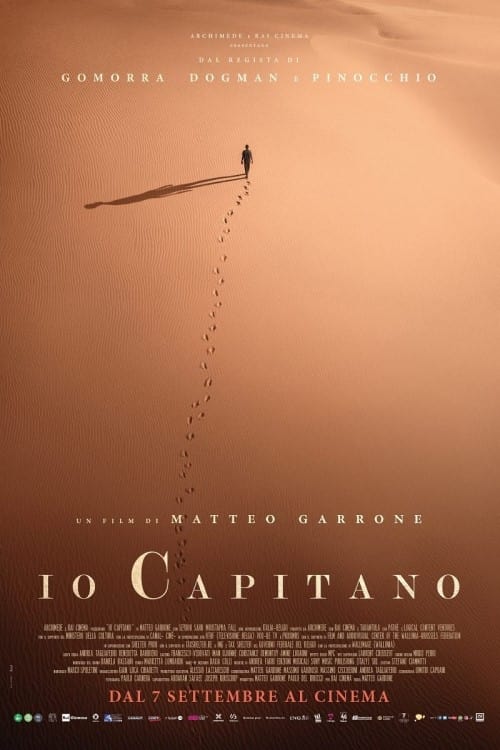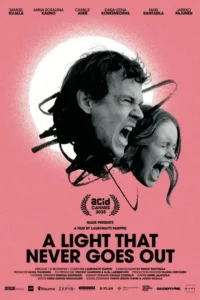Last updated on September 8, 2023
A film by Matteo Garrone
With: Seydou Sarr, Moustapha Fall, Bamar Kane, Didier Njikam, Ibrahima Gueye
Tells the story of two young men who leave Senegal for Europe; a contemporary odyssey through the dangers of the desert, the perils of the sea and the ambiguities of the human soul
Our Review: **
Matteo Garrone has seemingly forgotten, for a time (hopefully a long time), the turn his cinema has taken in recent years towards fairy tales, timeless and universal stories that speak to young and old alike, and is returning, as he did with his first works, to a cinema that is closer to reality, to current affairs, to everyday life, but also, we hope, to his references in Italian cinema. By tackling the subject of the migratory crisis, by following in the footsteps of two young Senegalese on their journey to reach Europe, to start a new life, far from their roots and their blocked horizons, to live their dream, we think that the imaginary will find little room given the urgency of the situation, the importance of the drama at play and its highly sensitive nature. All fable seems forbidden to us. After Agnieska Holland‘s certainly alert and intense look, we expect more truth, more tangible elements that allow us to empathize with the characters and the cause being defended (remember that Italy recently came under extreme right-wing governance, with anti-migratory postures that find their audience in a fearful population, and which has seen many dramas unfold on the Lampeduza side with a certain inertia and inexorability that is chilling). At this level, it seems to us that the story of Io, Capitano contains fewer rocky details, designed to add pathos to pathos, than does The green border … Garrone manages to avoid this first pitfall. He also avoids offering an image that would support the pathos, just as he avoids offering a story that is perfectly first-degree, and that would not allow itself any fantasy. On the contrary, he manages to offer a few moments of hallucinatory grace in the hardest moments, after having succeeded in the first part, in which he shows his characters in their family cocoon, in their natural habitat, without using too many clichés. Moreover, as is often the case with Garrone’s work, the images themselves, the highly polished photography, give the story a very cinematic form, highlighting the luminous, shimmering colors of Senegal, the beauty of the desert landscapes, the dunes of the Sahara… But then … what truth can we retain from all this? What strength and intensity does it convey? Can we get into the story, believe in it, empathize with the characters? Alas, if Garrone doesn’t overload his narrative, he falls into the opposite trap of simplifying it in the Little Prince style, making for a disturbing reading for those who want the tragic character to appear in its most accurate dimension, i.e., neither supported nor sublimated, just informed and credible. For the time being, the form proposed, in terms of images and even music, leans far too much towards the “positive”, “luminous” side, which seems highly unsuited to carrying a political message, reporting, and even moving. The story itself is full of the kind of easy going that you only find in the most beautiful Disney films, offering moments of rest, perhaps not of happiness, but of light in a horizon that calls for the worst. Thus, our two heroes, separated for a time, are magically reunited (ah, the magic of cinema) like a needle in a haystack, just when all seems lost, and twice, providence changes the destiny of one of our two heroes, allowing him to regain hope in his quest. Io, Capitano is deliberately aimed at the general public, to avoid conveying too many disturbing emotions, and to keep hope alive right up to its open-ended final scene, which some will read positively while others will see as the ultimate flip side of the coin, the notorious message, black at last, about the reception policies offered to migrants. In any case, this choice on the part of the producers (and probably Garrone himself) turns a potentially good film on a subject into an insipid work, forgetting along the way the importance of the political subject its subject matter entailed.










Be First to Comment